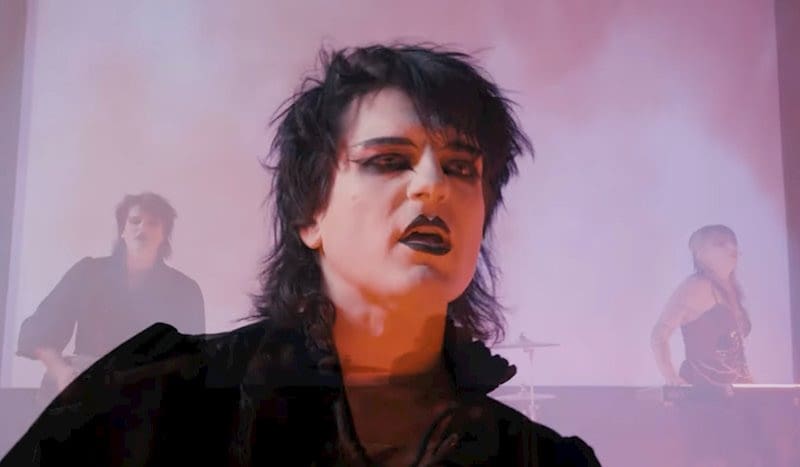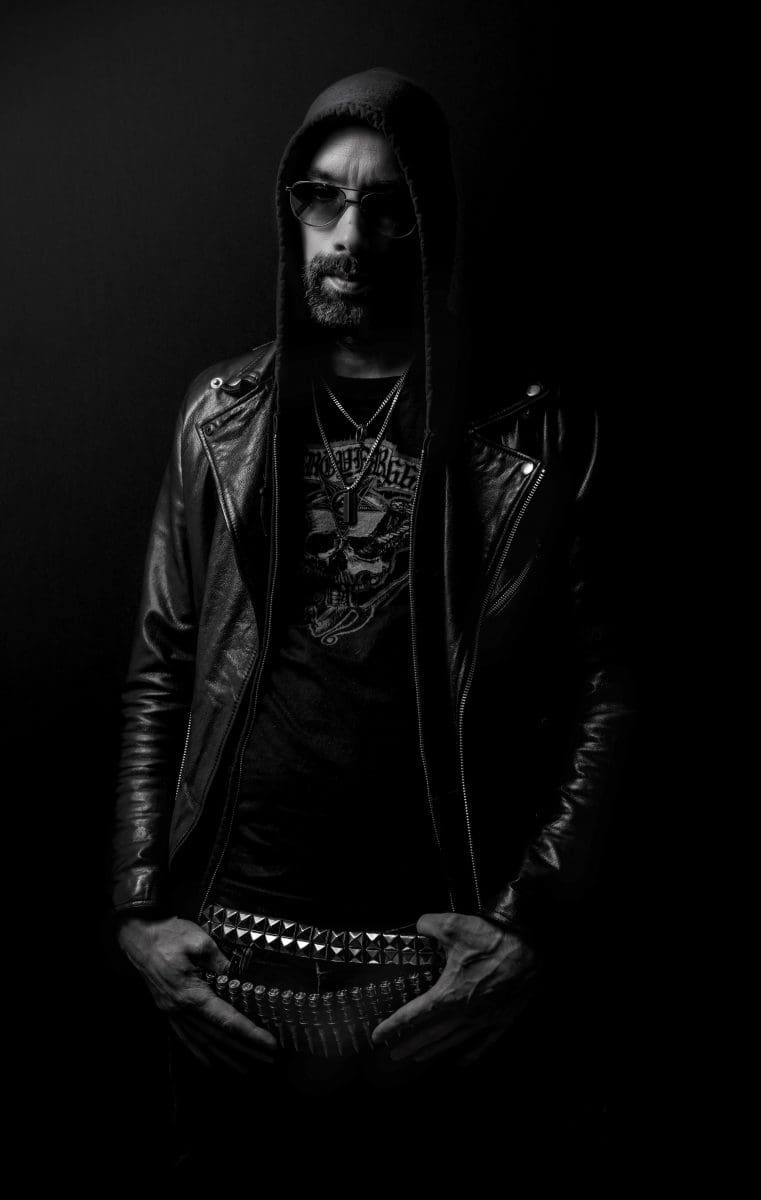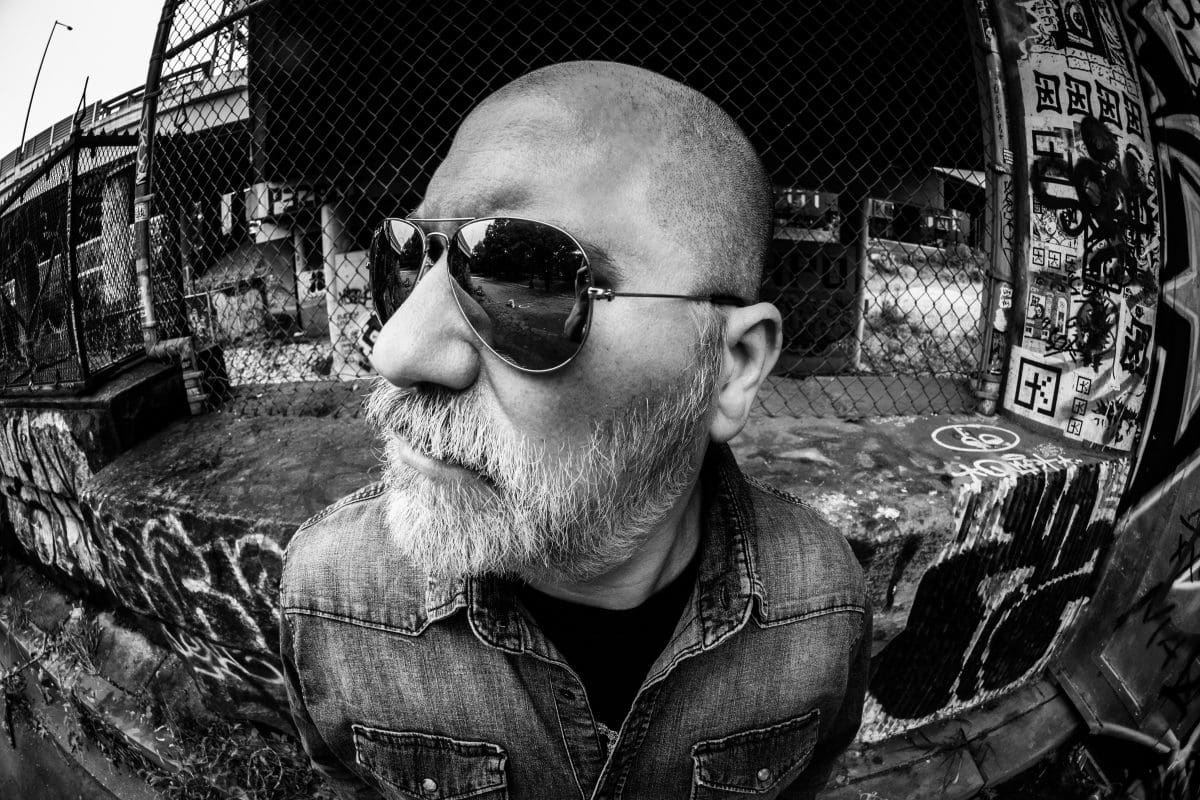ImJudas interview regarding new album: ‘My most tormented prayers…’

ImJudas interview: ‘My most tormented prayers…’
I had the chance to interview The Italian artist Maxx Maryan, who is nobody else but the male half of cult band HELALYN FLOWERS, for the release of his new album, “Viscerheart”, of his solo-project IMJUDAS that is fusing dark pop, post-punk and cold-wave. He brought us behind the veils of this poignant and so intimately intense release…
You can get the album right now from Bandcamp as download and on CD (plus special packages) and all other digital stores.
SL: “Viscerheart” is described as an exploration of love, suffering, obsession, and self-discovery. What inspired you to delve into these intense emotional themes, and how did they shape the overall narrative of this IMJUDAS album?
MM: I like to think that this new album was born from the unsustainability on my part of keeping inside many of my emotional and sentimental disorders and instabilities, because at a certain point I found myself feeling like I was scratching the bottom, so I pulled myself by the ear and I poured my discouragement into music and words. Above all the words, those throughout “Viscerheart”, are very important because they are my sung confession, my most tormented prayer. This is an album of cowardice, because I sing things that I would never have had the courage to say if not by singing them, just as I sing in the title track of the album “I have the courage to shout it but not write it. Why this cowardice? What doesn’t flow between heart and gut?”. Or again, in the song “Lost my faith in nirvana”, with clenched teeth I emit my most painful mantra “my chest is the seat of hate”. Here I call for help. This is not the album of the stupid basking in negativity as a banner of one’s nihilism, NO. There is great hope here.
SL: Your music has been characterized as ‘Electro-synth Pop with a Goth soul.’ How do you balance these genres, and what elements do you incorporate to maintain this unique blend in “Viscerheart”?
MM: As far as I’m concerned, I’m convinced that knowing how to bypass intentionality can give rise to the manifestation of part of our authenticity. At least that’s what I hope for and what holds together everything I’ve written and done. Probably my extreme curiosity on a musical level, therefore my not being stuck in just one musical area, the joy that learning from different styles and genres gives me and a certain shamelessness and contempt for the ‘safe mode’ are all elements that go to stratify my music. “Electro/Synth-Pop” is technically the result of everything, the ‘roof’ under which everything takes shape. While “Goth soul”, in fact, is what animates it. With this I am referring to a precise spiritual approach inherent above all in early Gothic.
SL: The album features a fusion of synth pop, dark wave, and post-punk. Can you discuss your influences from bands like DEPECHE MODE and GARY NUMAN, and how they have impacted your sound on tracks like “Tazebao” or yet “Go Away” for example?
MM: I think Depeche Mode are now so ingrained in me that any reference to them is unintentional! I discovered them as a child when they showed video clips of “Personal Jesus” and “Enjoy the Silence” on TV, between 1989 and 1990, and I haven’t left them since. With all the importance of an album like “Violator”, when I think of them my heart can only turn to the follow-up “Songs of Faith and Devotion”. When it came out it shocked me and from then on it remained for me a cornerstone of the meeting between electronic music and pop and rock. This is why I think that a song like my “Tazebao” is in some way the daughter of that inspiration, even if this is a consideration I make in hindsight; when I write and record, I don’t think about who or what my music might remember. Only when I listen back then do I enjoy finding correspondences, a ‘vice’, this one, quite journalistic and probably reminiscent of my very distant background as a fanzine-maker, ha ha… I can’t tell you how much Gary Numan in my opinion can be in a song like “Go Away”, probably a lot, according to many, given that in almost everything I do people find a reference to this great artist who I listened to a lot in a certain period of my life which coincided with the first years of Helalyn Flowers. I have to say that I really like his more pop records from the 80s.
SL: “Viscerheart” pushes sonic boundaries and ventures into EDM/Dance-Pop and sonic abstraction. What was your creative process in incorporating these diverse sounds, and how do you feel they enhance the album’s emotional journey?
MM: It’s all about picking up the signs. It is a simultaneity of inspiration between words and the “first” sequence, the “right” one. For me it’s all about abandoning yourself to this but also knowing how to control the creative flow so as not to disperse it between the jaws of reason. I think a certain underlying principle of reversibility is also fundamental in this; the more the container fills with beats the more it is about to pour out to empty itself, and there the beat becomes abstraction, absence of beats, rarefaction. The song “Lost my faith in nirvana” is a perfect example of this. But it’s like a yin-yang; these two concepts are not separate but mutually confluent, so that in one of them there is also a part of the other. This is why it happens that even in songs with a strong dance-pop flavour you can hear a ‘cosmic’ dimension in the background made up of hiss, manipulated and dilated vocoders, noise, drowned in the metaphysical distance of the reverb.
SL: The track “I Love You” from the previous single release is described as a Dark Pop / Post-Punk / Cold-Wave anthem. Can you talk about the creation of this song and what message or emotion you hope to convey through it?
MM: “I Love You” was one of the first songs written for the new album, so I think it represents a bit of its embryo and potential state. The love I speak of is not “another” love, because love is only one when it is authentic. I’m talking about how some ways of achieving it can hurt. Possessiveness, for example. When we are possessive, like someone who ends up excluding you from the world to protect you, we do it because in our minds we think we are pursuing a positive goal, but what results is disastrous. It’s about how good can turn bad, but only because desperation in love can get out of control and turn bad. In this case, evil, if you think about it, is a form of good, albeit degenerate, because it derives from it. It is up to us to discern and recognize these metamorphoses. However, I don’t want “I Love You” to remain, in its meaning, a mere description of how certain things happen (I think that in this song each of us can find at least a piece of our own existence) but that it transcends them, and that do through forgiveness.
SL: Your production on this album features intricate instrumentation, driving basslines, and wave-y guitars. How did you approach the production process to achieve this lush and polished sonic palette?
MM: It’s like a kind of multidimensional awareness. Once you have explored, for example, the rhythmic dimension, then you set off on a new journey such as the search for harmonies, and then again for noise etc. It all depends on how I conceive these emanations and how I don’t so much superimpose them as make sure that they flow into each other. Obviously, an important ingredient is fun. I enjoy. And a lot, too. For example, when, in the production phase, I find myself dealing with the bass, I enjoy thinking about putting into it something of what I have learned from listening to dub music. Or, for guitars, to use tones and drives that I loved hearing on an Andy Summers album and so on. I bring with me pieces of my experience as a true music lover, on a universal level.
SL: “Viscerheart” is said to invite listeners on a hauntingly beautiful journey through human emotions. What do you hope your audience takes away from this journey, and how do you want them to feel after listening to the album?
MM: I would like them, when they have finished listening, to feel a desire for joy. And that “Viscerheart” makes them reflect on not hiding from their own fallibility, so that they can admit all the evil inside us before letting it go and forgiving it. You must know how to cry to love this album. The emotional journey that “Viscerheart” guides is a warning: pay attention to your emotions and nourish your feelings instead. The world needs this, and we need it even more.
SL: As a solo project, how does IMJUDAS differ from your work with HELALYN FLOWERS, and what new creative freedoms or challenges did you encounter while producing “Viscerheart”?
MM: When you’re in a band what you must do is also consider a general vision, agreed with those who share the journey, so your individuality works at the service of a sort of entity, and however intimate your communicative style may be, never this must become synonymous with arbitrariness and mere selfish satisfaction. There are several good ways to be selfish but some of them will never match the needs of a band. This is why the solo-project path exists. And at least for me, having a side-project means transposing your person as much as possible without intermediaries, which might seem like an enviable freedom, but implies total responsibility. At the same time, the constant mirroring of yourself is a double-edged sword that you must know how to handle through periods of waiting. It’s like hunting yourself. Returning more specifically to your question, I think my “challenge” is to obtain a non-analytical but synthetic vision of myself. And I think this challenge is still ongoing. I love the idea of going beyond musical analysis and exegesis, beyond the charm of fragmentation and instead going to the heart of musical inspiration, the one of which I am the vehicle. Regarding, however, my creative freedoms, well, there is no doubt that my love for the most exotic soul of post-punk, the one that has its roots in black African music, as in dub-reggae and the Middle East, has been revealed, at least to the most attentive ears. I think the same also applies to certain industrial abstractionism as well as to a decidedly new wave and non-metal approach to the guitar.
Since you’re here …
… we have a small favour to ask. More people are reading Side-Line Magazine than ever but advertising revenues across the media are falling fast. Unlike many news organisations, we haven’t put up a paywall – we want to keep our journalism as open as we can - and we refuse to add annoying advertising. So you can see why we need to ask for your help.
Side-Line’s independent journalism takes a lot of time, money and hard work to produce. But we do it because we want to push the artists we like and who are equally fighting to survive.
If everyone who reads our reporting, who likes it, helps fund it, our future would be much more secure. For as little as 5 US$, you can support Side-Line Magazine – and it only takes a minute. Thank you.
The donations are safely powered by Paypal.











